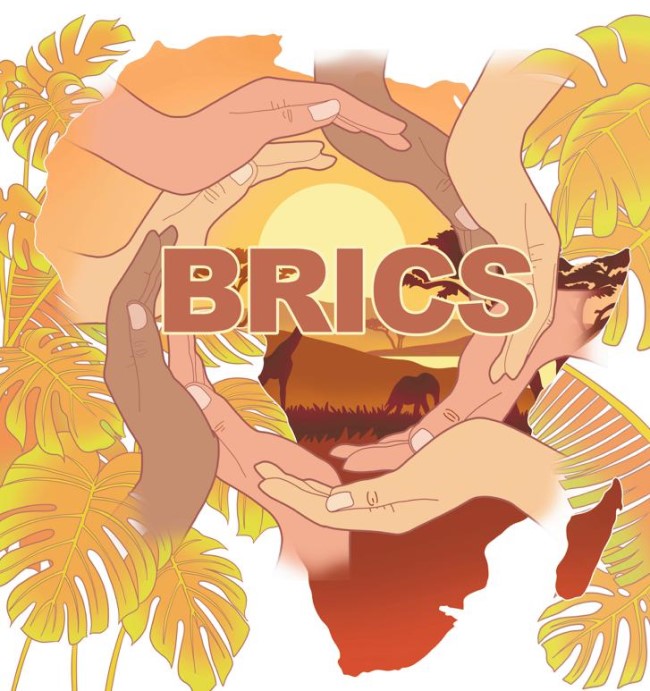As new members of BRICS, Ethiopia and Egypt's inclusion in the grouping undoubtedly can bolster Africa's collaboration with other emerging economies across different continents, thereby empowering the Global South to wield greater influence on the global stage.

[Photo by Jin Ding for China Daily]
Building on the significant outcomes of the Summit of the Forum on China-Africa Cooperation held in September, the framework of BRICS can facilitate further cooperation between the world's second-largest economy and the rapidly growing African continent.
China's unprecedented economic development over the past more than four decades has been a potent stimulus for many countries. Through a gamut of treaties and conventions, China is now helping developing countries to alleviate poverty and boost their development in the spirit of South-South cooperation.
Thanks to enhanced cooperation with China, Ethiopia has made some notable achievements in building communication networks, power plants, industrial parks and manufacturing units, as well as making great progress in human development (life expectancy in Ethiopia rose from 47 to 67 years), in the process realizing the UN Millennium Development Goals.
Thanks to the Belt and Road Initiative, developing countries are starting to reap the benefits of trade connectivity, currency swaps and agro-industrial revolution. More than 150 countries have joined the Belt and Road Initiative, among which Ethiopia is one of the pivotal regional partners. The African Continental Free Trade Area initiative of the African Union, too, is primed to benefit from it.
On the other hand, a flagship of capacity building initiative is the Luban Workshop established by a Chinese university of technology. Since its launch in 2021, the Chinese-Ethiopian Luban Workshop, located at the Ethiopian Federal Technical and Vocational Training Institute has trained more than 1,000 vocational education teachers and students specializing in industrial robotics, industrial control and industrial sensor technology, while providing valuable skills for Ethiopians in various other technological fields.
Governance challenges in developing countries, however, need to be overcome for the partnership to bear the full rewards of prosperity. Conflicts are intensifying in many parts of Africa, Europe and the Middle East.
Africa has copious natural resources and a trainable young labor force, and is emerging as a new investment destination. Promoting peace, eradicating corruption and the illicit flow of capital, coupled with an enabling governance milieu for youth start-ups, are a precondition for success.
It is in this spirit that China and Ethiopia have agreed to elevate the bilateral relationship to an all-weather strategic cooperation partnership, an elevated status endowing Ethiopia with a plethora of privileges, including a solid foundation of political trust, a strategic alliance built on shared national interests, and a steadfast China support. Beijing has vowed to provide comprehensive support for reconstruction after the signing of the Pretoria Agreement.
Furthermore, China has agreed to assist Ethiopia in alleviating its external debt burden. Five Chinese companies have signed memorandums of understanding with the Ethiopian Investment Commission, primarily in the pharmaceutical and agro-processing sectors. These agreements encompass a wide array of benefits for Ethiopia, ranging from debt cancellation to strengthened geopolitical alliances.
China's game-changing partnership and transformational support to other developing countries augured on its economic growth model have ushered in equitable benefits and are gradually displacing the exploitative relationships that have prevailed under various development theories and initiatives since the end of World War II. China is a staunch supporter of African friends, and other partners in the Global South.
The views don't necessarily reflect those of China Daily.
The author is former chair of the African Union Anti-Corruption Advisory Board and a professor of public policy at Addis Ababa University in Ethiopia.
If you have a specific expertise, or would like to share your thought about our stories, then send us your writings at opinion@chinadaily.com.cn, and comment@chinadaily.com.cn.



